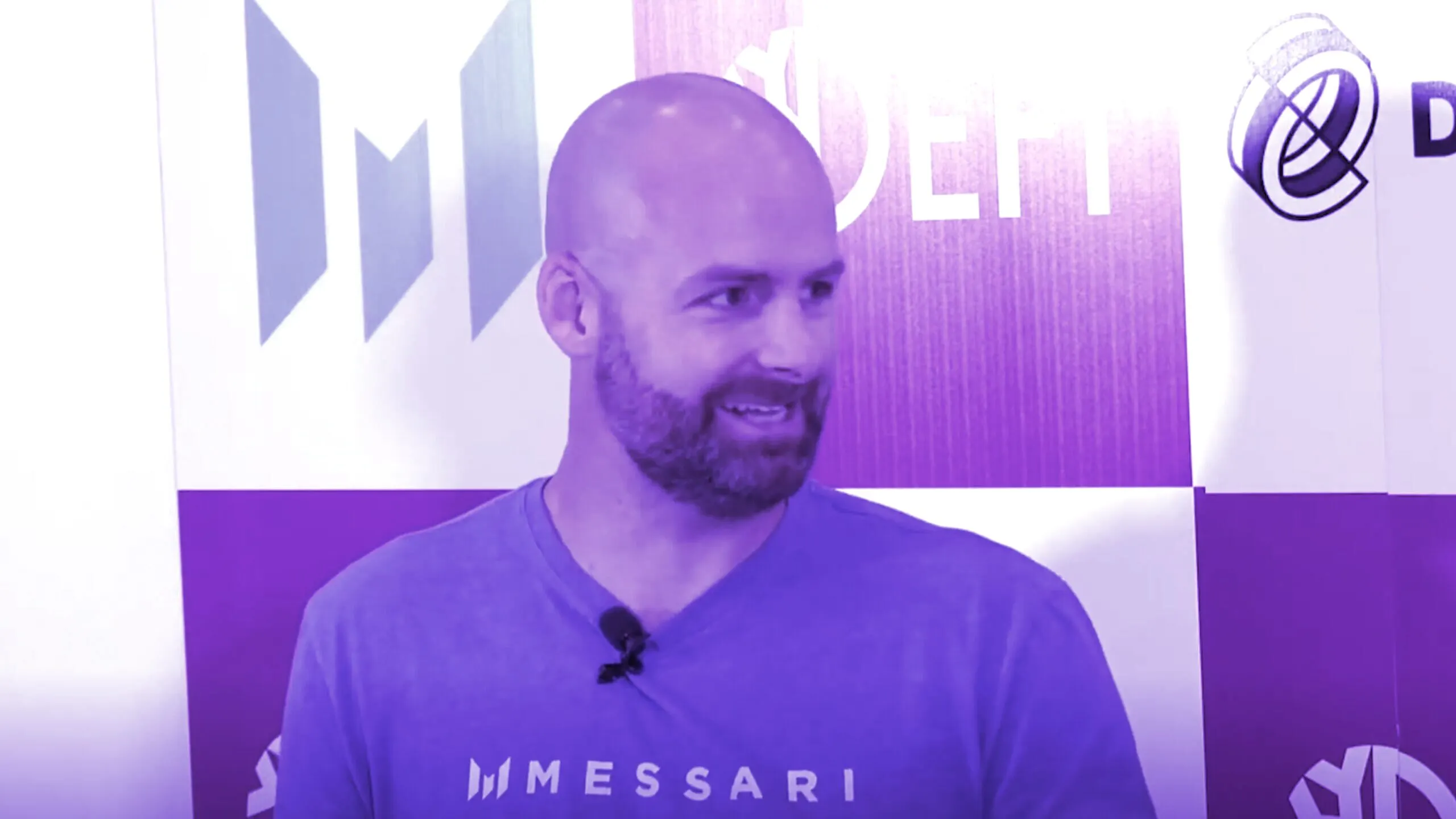While crypto winter has been tough sledding for much of the industry, Messari CEO Ryan Selkis views a little austerity as being healthy for the industry—and for his own conference.
A veteran of the crypto industry who got his start in 2013, Selkis has seen growth come with each bear market, as each has forced some companies out of business and made room to flourish for ones that survive. That cyclic process has coincided with a regulatory environment that’s evolved over time and can simmer to a boiling point in a bull market.
“Bear markets are good for getting the right people in the room,” Selkis said in an interview with Decrypt at the Messari Mainnet conference in New York this week. “We wash away all the dead wood.”
Selkis pointed out that multiple officials were incorporated as speakers into this year’s conference, including representatives from the Commodity Futures Trading Commission (CFTC) and the Department of Justice (DOJ), and that their presence reflects a growing shift in the crypto space towards regulators working with companies.
“These should be conversations,” Selkis said, referencing the ability to bring regulators into the fold. “For the most part, people seem to be on the same page in terms of driving more constructive solutions, versus the proverbial hammer that’s looking for a nail.”
Selkis held a fireside chat onstage with CFTC Commissioner Caroline Pham, where the two talked about how regulation could help the crypto industry as clearer guidelines for companies are developed and jurisdiction is clarified between the CFTC and Securities and Exchange Commission (SEC).
On a separate panel, Selkis spoke with Sanjeev Bhasker, who works with the U.S. Department of Justice's Digital Currency Initiative as U.S. Digital Currency Counsel. The panel discussed digital privacy as it relates to the use of cryptocurrency.
It is not the first time regulators have made an appearance at Messari Mainnet. This time their presence was planned, but last year a representative from the SEC served Do Kwon, co-founder of Terra Labs, with a subpoena at the top of an escalator as Kwon entered the conference. That subpoena was regarding Mirror, a DeFi protocol built on Terra that created synthetic versions of real-world assets that could be traded, including stocks.
“Anytime you have a group of folks like this, [it’s] just the law of large numbers,” Selkis said. “There’s going to be thousands of people here, some of them are international—if some of them are under investigation, [a subpoena] might happen from time to time.”
All of that took place before the collapse of Terra’s UST stablecoin this year, an event that wiped out billions of dollars in investor funds and rattled institutions that made big bets on Terra's network, including lenders Celsius and Voyager, and the now-defunct crypto hedge fund Three Arrows Capital.
Selkis believes regulatory conflict is bound to happen when developers are “pushing the envelope” of what’s possible in the crypto space. He said, “Things break and people get in trouble—that’s really been the nature of crypto since day one.”
Daily Debrief Newsletter
Start every day with the top news stories right now, plus original features, a podcast, videos and more.

